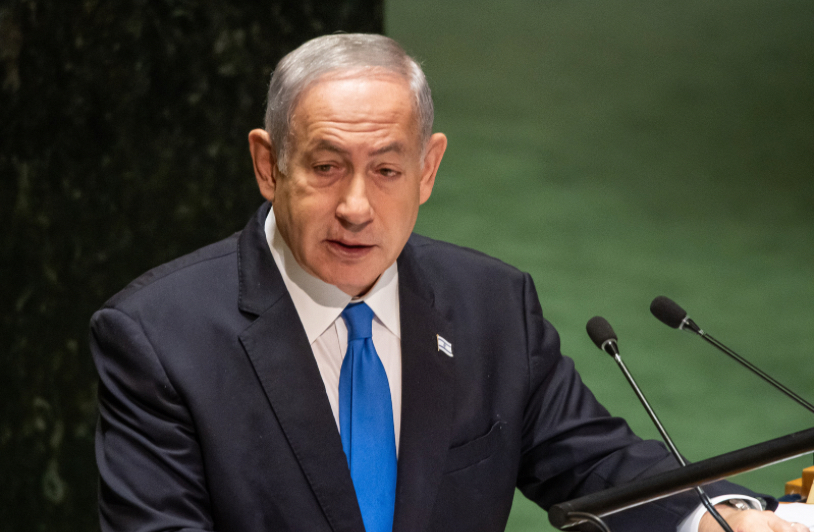Netanyahu’s U.S. Visit: Political Theater Amid Gaza Crisis and Calls for Accountability
Even as Israeli Prime Minister Benjamin Netanyahu was addressing Congress, meeting with an outgoing Joe Biden and a potential incoming Kamala Harris and with Donald Trump, the thought kept popping up.
If stepping aside as a “patriotic act” of Biden is expected as a presidential candidate, and, for example, if Kimberly Cheatle was forced to resign after a Secret Service failure even before an investigation, why isn’t Netanyahu at 74 considering the same, since his insistence on continuing military campaign in Gaza started with his failures and has resulted in global scorching over its most ill effects? While we’re at it, the leaders of Hamas, the Palestinian Authority and the Ayatollah also should be stepping down in the current spirit of wiping away all the incumbents.
Of course, even as a hostage-for-ceasefire deal is reported to be near, it is not done, and from Netanyahu’s belligerent tone, it is difficult to see a lasting deal happening anytime soon. A promised “conciliatory” speech was a broadside attack on Americans and others who might protests any aspect of the Israeli war as being tools of Iran and Hamas.
Anyone hoping for news of a breakthrough might as well have joined those who chose to stay away.
Did We Learn Anything?
Netanyahu was fulfilling a somewhat political, somewhat diplomatic itch to re-cement ties in Washington for continuing financial, military, intelligence and diplomatic support from his closest American allies. But the visit, in which he lavished praise on both Biden and Trump, felt political, untimely, and maybe as about raising his profile at home — or just self-promotion.
In this sudden season of instant “accountability” as drawn particularly by Congressional Republicans for anyone not named Trump, here was Netanyahu to offer the case for open-ended and non-questioning support of an increasingly right-leaning agenda in Gaza, the West Bank, and even now into southern Lebanon without any real acknowledgment that things have not gone as planned or hoped in the Middle East.
It was Netanyahu who pulled security forces from the Gaza border, creating the opportunity for Hamas terrorism on Oct. 7 for their reassignment to Jewish settlement expansion in the West Bank. It was Netanyahu who sent money to the UAE for Hamas to keep them from joining forces with the Palestinian Authority.
It has been Netanyahu who launched a strategy more focused on destroying Hamas than on freeing hostages that have targeted civilian hospitals and schools where Hamas operates, who has leveled more than half of Gaza and allowed only limited humanitarian aid, who is being charged with international war crimes for starving two million Palestinian civilians. It is Netanyahu who faces a hostility on his own streets from tens of thousands, even as he refuses investigation of what led to October 7, as well as charges now postponed.
It is Netanyahu who sees a future of a tamed Gaza with an international occupation force, not recognition of a Palestinian nation that is incented to be a partner nation.
Just Why the Visit?
Driving to the Capitol took him by thousands of protesters who see the manner of the Israeli military campaign to be unusually and legally harsh. Netanyahu asserted without fact that protesters are paid by Iran, which should come as news to many in the anti-war crowd. He once again linked an anti-war feeling with anti-Semitism.
The tumult over Netanyahu’s appearance in Washington came across, as increasingly seems to be the case, more of political theater — to no understood end. It seemed the doing of a Republican-majority Congress who wanted to help its partisan criticism of the Biden administration during the U.S. election season.
But for politics, we could have heard the same speech about Ukraine — except, of course, that Republicans see one world tie and ally different than the other.
There has never been a serious question about aid, despite a decision by Biden to delay one heavy munition that he found inappropriate for bombing in an urban area because civilians would be killed. Indeed, Biden himself has been criticized by progressives on the left for favoring Israeli military moves disproportionately over either hostage release, or humanitarian concern for Gazans. Republicans and some Democrats who criticize Biden, or now Kamala Harris, for being insufficiently supportive of Israel must be following some different kind of military progress reports than the rest of us.
If Netanyahu wanted to say thank you to his strongest ally, he could have used the phone. Agreeing to speak to a joint session of Congress, especially as a ceasefire deal looms, seems unnecessary unless he was ready to make news and agree to sign it.
What there has been is an open question about what is to happen when the military clashes end — a question asked repeatedly by the Israeli Defense Force leaders themselves. Biden/Harris have taken the current fighting as a goad toward pushing for recognition of a Palestinian state, along with an international force to secure Israel’s safety.
The fact remains that Netanyahu opposes a two-state idea, and his increasingly right-leaning cabinet coalition wants to occupy and create yet more Jewish settlements in Gaza, as well as the West Bank.
Without a ceasefire, there will be more fighting and humanitarian issues in Gaza, more missiles raining from inside Lebanon, a separate, recognized state where Hezbollah fighters dictate what attacks will launch, and now from Yemen, where Houthi rebels are acting within another separate state. Meanwhile, the families of hostages mourn the fact that Netanyahu does not put them first. And Iran is building its nuclear reserves toward weapons readiness.
It seems a long way to go to give a speech that underscores all the bad things we already know.




